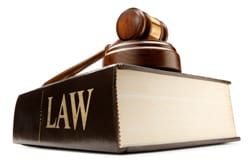 Last week, the Minnesota House passed a DUI immunity bill that repeals an archaic law giving state lawmakers immunity from misdemeanor charges, including drunk driving, during a legislative session.
Last week, the Minnesota House passed a DUI immunity bill that repeals an archaic law giving state lawmakers immunity from misdemeanor charges, including drunk driving, during a legislative session.
The law was created by the state’s founding fathers in 1858 to prevent lawmakers from being arrested during a legislative session and kept from voting on important measures. Currently, the law continues to give Minnesota lawmakers immunity except in cases of “treason, felony, and breach of the peace.” Lawmakers are given the privilege at the beginning of each legislative session.
The DUI immunity bill that repeals the law originally focused on erasing immunity for state legislatures facing drunk driving charges but was amended to include all felonies, gross misdemeanors, and misdemeanors.
While the bill passed the House, its passage didn’t come with some opposition. Mostly, lawmakers questioned whether or not it was even necessary to rescind the law, since elected officials don’t appear to be avoiding arrests by claiming immunity. Researchers didn’t even find evidence that a Minnesota legislator has ever been arrested for DUI during a legislative session. However, supporters of the bill, including a group of political science students at Concordia University who started the push to repeal the law, argued that the outdated law leaves a loophole that could allow lawmakers to get away with drinking and driving and other crimes.
At Car Breathalyzer Help, we believe that drunk driving is dangerous at any time and that no one should be immune to drunk driving charges. Even though lawmakers don’t seem to be misusing the law, we’re glad to see Minnesota lawmakers working toward removing the law and closing the loophole it creates.
